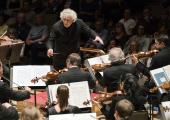★★★ JAKE SHEARS - JAKE SHEARS Scissor Sisters' singer comes back solo at full fruity tilt
The Scissor Sisters' singer comes back solo at full fruity tilt
There are two schools of thought on the Scissor Sisters. One was that they were vapid, over-cheery retro-pop of the worst order. The other is that they were an extension of New York’s ever-mischievous underground in all its underground LGBT+ disco glory. While they certainly leaned occasionally towards the former, I very much valued them as the latter. The first solo album from frontman Jake Shears provides the same quandary and its relentless Labrador bounciness won’t be for everyone.
Shears took time out when the Scissor Sisters went on hiatus in 2012 after their fourth album. Recently his autobiography was published, as candid as any, oozing with body fluids, and his new album also shoots from the hip, boasting a lyricism that’s proud, gay and vulnerable, albeit usually wrapped in multiple layers of sass and bravado. “Big Bushy Mustache”, for instance, about “porn star handlebars”, lathers its subject matter in joyous frivolity over a “Filthy/Gorgeous” funk-rock boogie, while “Sad Song Backwards”, a centrepiece of the album, has lyrics such as “Every god damn day since you left me/Hung me dry, betrayed and you effed me/I’m bereft, depressed and so confused” but still sounds ebullient over a Vaudevillian take on country stompin’.
Shears based his sound around Ray LaMontagne’s 2016 album Ouroboros, utilising its producer Kevin Ratterman and various musicians who worked on it. It’s not an album I know so cannot comment, but the overall sound of Jake Shears is an amped take on the Scissor Sisters first album, all that Elton/Queen vivaciousness filtered through an older, not always wiser Rufus Wainwright sensibility. There are places when the sense of listening to songs from a musical is overpowering – the single “Creep City” sounds like a catchy outtake from Little Shop of Horrors. But the album is at its best when sleazy funk takes over as on “S.O.B.” (“sex on the brain”!) or the slower “The Bruiser”, which borrows its drum track from Iggy Pop’s “Nightclubbing”.
Shears’ debut is a bit much, when consumed in one go, a feast that’s simply OTT in colours, spices, flavours and, especially, candy, but I’m betting it’s a grower. By the end of the year, its essence rather than its peacock surface display will have come to the fore, and some of these songs will be lodged in many of our brains.
Overleaf: Watch the video for "Big Bushy Moustache" by Jake Shears









